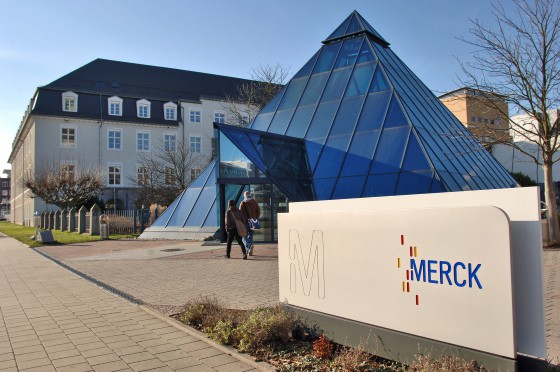
Germany’s Merck KGaA has suffered a setback in its late-stage pipeline after a phase III trial of lung cancer vaccine Stimuvax failed to show an improvement in overall survival.
The STRAT trial enrolled more than 1,500 patients with advanced (stage IIIa or IIIb) non-small cell lung cancer (NSCLC) that was untreatable with surgery but had stabilised or responded to prior chemotherapy.
Stimuvax (L-BLP25) – an investigational cancer immunotherapy that is designed to stimulate the body’s immune system to kill cells expressing the cancer-associated antigen MUC1 – was unable to demonstrate a statistically significant improvement in overall survival although positive treatment effects were observed in some patient groups, according to Merck.
The company said it would discuss the data with clinicians and regulatory authorities over the coming months. An Asia-Pacific phase III trial of Stimuvax in NSCLC called INSPIRE will continue while “pending discussion with relevant regulatory agencies”, said the firm.
Stimuvax has followed a somewhat convoluted development path, with Merck forced to suspend enrolment of patients into trials of the vaccine in 2010 after a patient developed acute inflammation of the brain.
The FDA-ordered clinical hold on the trials was relaxed later the same year trials in NSCLC, although enrolment in a third study of Stimuvax in breast cancer, called STRIDE, remained suspended and has not resumed since, according to Merck’s latest pipeline listing.
“It is disappointing that the START trial did not meet its primary endpoint, in particular for patients suffering from NSCLC,” said Dr Frances Shepherd, a lung cancer specialist at the University of Toronto, Canada, who served as coordinating investigator of the START trial.
“However, notable treatment effects were observed in certain subgroups of patients and warrant further investigation of L-BLP25,” she added.
The only cancer immunotherapy that has reach the market to date is Dendreon’s prostate cancer vaccine Provenge (sipuleucel-T), which despite being shown to be efficacious has seen take-up grow slowly as a result of its relatively complex administration and confusion about reimbursement in the US.




